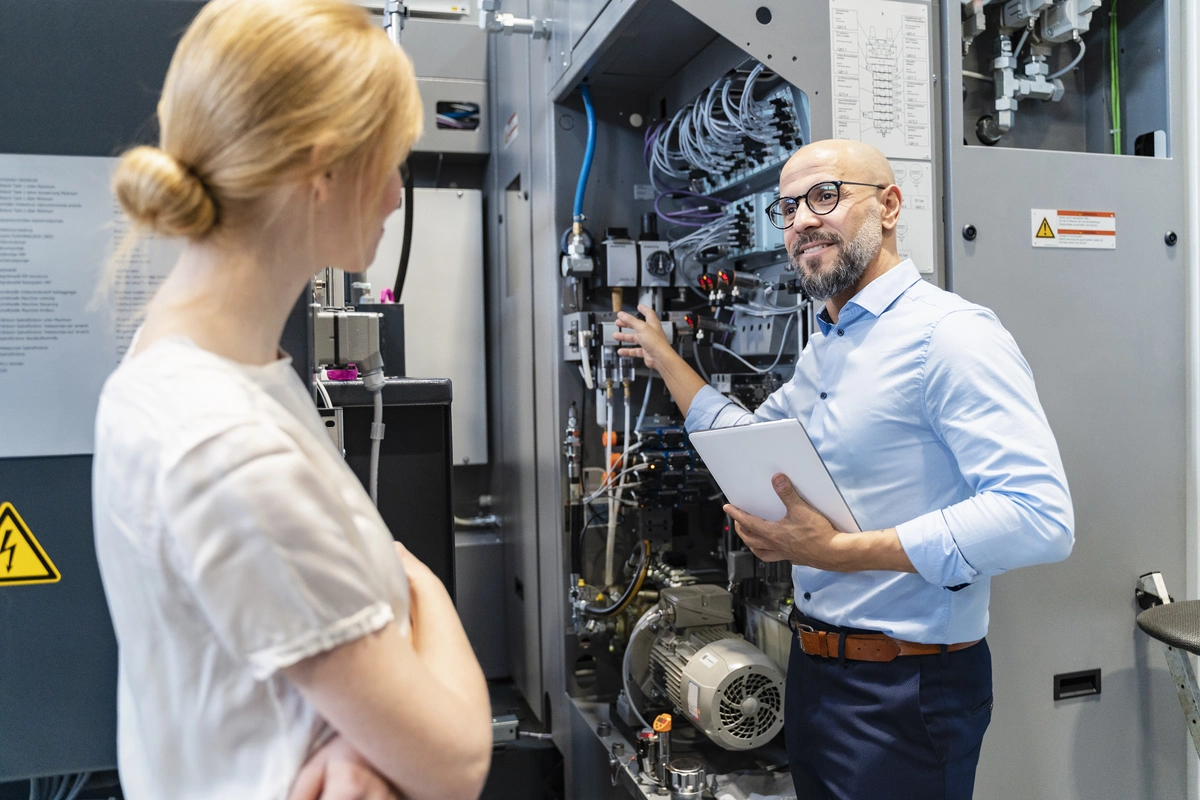What Are the Latest Advancements in Fuel Cell Technology?
Another breakthrough lies in the durability of fuel cells. Traditionally, one of the challenges with fuel cell technology has been maintaining performance over extended periods. However, recent advancements in materials science and manufacturing techniques have led to fuel cells that are more robust and longer-lasting. This durability not only improves reliability but also reduces maintenance costs, making fuel cells a viable option for commercial and industrial use.
Moreover, researchers have made significant strides in reducing the cost of fuel cell technology. By optimizing production processes and exploring new materials, they have managed to bring down the overall cost of fuel cells. This cost reduction is crucial for making fuel cell technology more accessible and competitive with other forms of energy generation.
Furthermore, there have been exciting developments in the scalability of fuel cells. While they have traditionally been used in niche applications, such as powering spacecraft or backup generators, advancements have enabled the scaling up of fuel cell systems for larger applications, including powering vehicles and even providing electricity to entire communities.
Revolutionizing Energy: Breakthroughs in Fuel Cell Efficiency and Performance
Fuel cells have long been hailed as the holy grail of clean energy, offering a tantalizing glimpse into a sustainable future. But it’s the recent advancements in fuel cell efficiency and performance that are truly revolutionizing the game.
Imagine a fuel cell as a mini power plant that fits under the hood of your car. Instead of burning fossil fuels, it generates electricity through an electrochemical process using hydrogen and oxygen. The result? Pure water vapor as the only byproduct, making it not just efficient but incredibly eco-friendly.
What’s exciting is how far we’ve come in making these fuel cells more efficient. Engineers and scientists have been hard at work refining the materials and processes involved. By optimizing the catalysts that facilitate the chemical reactions within the cell, they’ve managed to significantly boost its efficiency. This means more power generated from the same amount of input fuel, translating to longer ranges for electric vehicles and more energy for industrial applications.
Performance-wise, today’s fuel cells are also proving their mettle. They can operate in a wide range of conditions, from extreme temperatures to varying altitudes, without compromising on output. This reliability makes them viable not just for cars but for buses, trucks, and even stationary power generation in homes and businesses.
But perhaps the most promising aspect of these advancements is their scalability. Fuel cells are no longer confined to niche applications; they’re poised to become a mainstream energy solution. Governments and industries worldwide are investing heavily in their development, recognizing their potential to reduce greenhouse gas emissions and lessen our dependence on finite fossil fuels.
As we look ahead, the horizon for fuel cells seems boundless. From powering our everyday commutes to transforming how we generate electricity, these breakthroughs are paving the way for a cleaner, greener tomorrow. So, buckle up and get ready to ride the wave of fuel cell innovation – because the future of energy is here, and it’s looking brighter than ever.
From Lab to Road: New Fuel Cell Designs Promise Cleaner Transport Solutions
Fuel cells are not a new concept, but recent advancements have sparked renewed interest and excitement. These devices convert chemical energy directly into electrical power through a reaction between hydrogen and oxygen, with the only byproduct being water and heat. It’s like having a mini power plant in your vehicle, but one that operates silently and with zero harmful emissions.
What makes these new designs so promising? For starters, efficiency is key. Traditional combustion engines waste a significant amount of energy as heat, whereas fuel cells can achieve efficiencies of up to 60% or more. This means more mileage per hydrogen fill-up and less strain on our planet’s resources.
Moreover, the environmental benefits are substantial. By reducing greenhouse gas emissions and pollutants, fuel cell vehicles contribute to cleaner air and lower carbon footprints. This is not just a technological advancement; it’s a step towards addressing climate change and improving air quality in our cities.
But it’s not just about cars. Fuel cells have applications across various modes of transport, from buses to trucks and even maritime vessels. The scalability and versatility of this technology make it a viable option for decarbonizing the entire transportation sector.
Green Energy Innovation: How Next-Gen Fuel Cells Are Redefining Sustainability
Imagine a world where energy is not just abundant but also clean and sustainable. This vision is becoming a reality with the rapid advancement of next-generation fuel cells. These innovative technologies hold the key to transforming our energy landscape, offering a promising alternative to traditional fossil fuels. But what exactly are fuel cells, and how are they changing the game in sustainability?

One of the most exciting aspects of next-generation fuel cells is their versatility. They can be powered by a variety of sources, including hydrogen, natural gas, and even biogas from organic waste. This flexibility makes them suitable for a wide range of applications, from powering homes and vehicles to providing backup power for critical infrastructure. Imagine driving a car that emits nothing but water, or living in a house powered by clean energy generated from renewable sources.
Moreover, advancements in fuel cell technology have made them more reliable and cost-effective than ever before. Manufacturers are continuously improving efficiency, durability, and scalability, making it feasible to integrate fuel cells into mainstream energy systems. As a result, countries and industries around the world are increasingly investing in fuel cell research and deployment, recognizing their potential to revolutionize the way we generate and consume energy.
Next-generation fuel cells represent a significant leap forward in the quest for sustainable energy solutions. By harnessing the power of electrochemical reactions, these innovative devices offer a cleaner, more efficient alternative to traditional energy sources. As technology continues to evolve, fuel cells will play a crucial role in shaping a greener and more sustainable future for generations to come.
Hydrogen Power Unleashed: Advancements Propel Fuel Cells into the Mainstream
Fuel cells work like magic: they generate electricity silently and cleanly, with only water and heat as byproducts. It’s like having a mini power plant in your vehicle or your house, without the noise or pollution of traditional engines. This technology has been around for decades, but recent innovations have made it more practical and affordable than ever before.
One of the key advancements driving this revolution is improved efficiency. Engineers have cracked the code on making fuel cells more efficient at converting hydrogen into electricity, meaning less fuel is needed for the same amount of power. This efficiency boost not only makes hydrogen a viable alternative to fossil fuels but also enhances its economic viability.
Another game-changer is durability. Early fuel cells were delicate and prone to wear out quickly, but today’s models are built to last. Manufacturers have developed robust materials that can withstand the rigors of everyday use, whether in a car that travels hundreds of miles or in a stationary power generator that runs continuously.
And let’s talk about accessibility. It used to be hard to find hydrogen refueling stations or affordable fuel cell systems. Now, infrastructure is expanding, and costs are coming down. Governments and private companies alike are investing heavily in building the necessary infrastructure to support a hydrogen economy, making it easier for consumers and businesses to adopt this clean technology.

